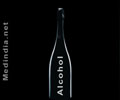Spironolactone, the drug used to treat heart problems and hypertension was found to be effective against alcohol use disorder.

Spironolactone: Potential Treatment for Alcohol use Disorder
“Combining findings across three species and different types of research studies, and then seeing similarities in those data, gives us confidence that we are onto something potentially important scientifically and clinically.Currently there are three medications approved for alcohol use disorder in the United States, and they are an effective and important aid in the treatment of people with this condition. Given the diverse biological processes that contribute to alcohol use disorder, new medications are needed to provide a broader spectrum of treatment options. Scientists are working to develop a larger menu of pharmaceutical treatments that could be tailored to individual needs.
Previous research has shown that mineralocorticoid receptors, which are located throughout the brain and other organs and help regulate fluid and electrolyte balance in the body, might play a role in alcohol use and craving. Preclinical research suggests that higher mineralocorticoid receptor signaling contributes to increased alcohol consumption. The current study sought to expand this line of research by testing spironolactone, a medication with multiple actions, including blocking mineralocorticoid receptors. Spironolactone is used in clinical practice as a diuretic and to treat conditions like heart problems and high blood pressure.
Mouse Models of Excessive Alcohol Drinking
In a parallel study that was part of this team’s collaborative efforts, researchers led by co-senior author Amy C. Justice, M.D., Ph.D., of the Yale School of Medicine, examined health records of a large sample of people from the U.S. Veterans Affairs healthcare system to assess potential changes in alcohol drinking after spironolactone was prescribed for its current clinical indications (e.g., heart problems, high blood pressure). They found a significant association between spironolactone treatment and reduction in self-reported alcohol consumption, as measured by the Alcohol Use Disorders Identification Test-Consumption, a screening tool. Of note, the largest effects were observed among those who reported hazardous/heavy episodic alcohol consumption before starting spironolactone treatment.“These are very encouraging findings,” said NIAAA Director George F. Koob, Ph.D., a co-author of the study. “Taken together, the present study argues for conducting randomized, controlled studies of spironolactone in people with alcohol use disorder to further assess its safety and potential efficacy in this population, as well as additional work to understand how spironolactone may reduce alcohol drinking.”
“Just like for any other medical condition, people with substance use disorders deserve to have a range of treatment options available to them, and this study is an exciting step in our effort to expand medications for people with alcohol use disorder,” said Nora Volkow, M.D., director of NIDA. “In addition, we must address the stigma and other barriers that prevent many people with alcohol use disorder from accessing the treatments we already have available.”
Source-Eurekalert















